Don't Pick Up the Phone You Know He's Only Calling


Communicative skills are very important. Communicating properly on the phone is peculiarly of import, every bit the person you are speaking to cannot see your facial move or your body language. They rely completely on what you are proverb, and how you lot are speaking, to understand you fully.
Every bit well every bit speaking clearly when talking on the phone, it is vital to use the correct level of formality. If you are too formal, people might find information technology difficult to experience comfy when talking to yous. If yous are too informal, they might retrieve you are being rude!
Generally speaking, when you are calling in a business organisation context (making calls related to employment, finances, police, health or applications of whatsoever sort), you should show politeness by using words like:
- could
- would
- can
- may
when making a request. When you ask for something, or receive help or information, you should employ:
- please
- thank you
- thank you lot very much.
It is besides okay to use some of the informal features of the English linguistic communication such as short forms, phrasal verbs and words similar okay and bye – in other words, everyday English! And then phrases similar:
- 'I'thousand off to a conference, okay, bye',
- 'Hang on a moment, I'll put you through'
are perfectly acceptable, as long as the overall tone of your voice is polite and friendly.
If it is more of an informal phone conversation (speaking to a friend, family unit member, shut work colleague or fifty-fifty a friend of a friend), then a high level of formality is usually non required, only you should still speak with a polite fashion, as it is seen as respectful.
It's fine to utilize less formal phrases in these conversations, such as
- 'cheers'
- 'cheers'
- 'bye'
- 'okay'
- 'no trouble'
Another useful affair to call back is, it's better to enquire for assistance or clarification when you're having a telephone conversation, than to pretend y'all understand something that you didn't. It is absolutely fine to utilize phrases similar:
- 'Could you repeat that please?'
- 'Could you lot speak a footling more than slowly please?'
- 'Would you mind spelling that for me please?'
Using phrases like these will assist you to have a more successful phone phone call, and may save you from any problems afterward on. You could ever say:
- 'I'm afraid the line is quite bad',
if you tin can't hear very well.
It besides a good thought to exercise words, phrases and vocabulary that you might need to employ, before the phone call! So to assistance you out a little, hither is a listing of commonly used phrases:
Skype English Lesson with a native AMERICAN or BRITISH instructor ››
Recommended for you:
List of Sentence Connectors in English with Examples!
Deviation between Connect, Contact, Carry and Communicate
How to introduce yourself in English language: Tips and Phrases

Introduction / Making Contact
If answering a business organization call, start by introducing yourself or if the caller fails to place themselves, then you could inquire them to land who they are past using the following phrases:
Formal
- 'Howdy'
- 'Good Morn'
- 'Adept Afternoon'
- 'This is ___ speaking'
- 'Could I speak to ___ please?'
- 'I would like to speak to ___'
- 'I'thousand trying to contact ___'
Informal
- 'Hello'
- 'Hi, information technology's ___ here'
- 'I am trying to go far touch on with ___'
- 'Is ___ in that location delight?'
Bank check your Grammar ››
Recommended for yous:
Polite Expressions in English language: Words, Phrases and Questions
Other ways to say "Prissy To Encounter Yous"

Giving more information
This would probably exist used in a concern context mainly, but could sometimes be helpful in an informal conversation too. It is good to specify where you are calling from, if you feel it may be helpful to the person you lot are calling.
Formal
- 'I am calling from ___
- I'm calling on behalf of ___'
Informal
- 'I'm in the post part at the moment, and I merely needed ___'
Skype English language Lesson with a native AMERICAN or BRITISH teacher ››
Recommended for y'all:
Formal and Informal Electronic mail Phrases Starting with Greetings
7 Elementary Examples of Business Email Writing in English
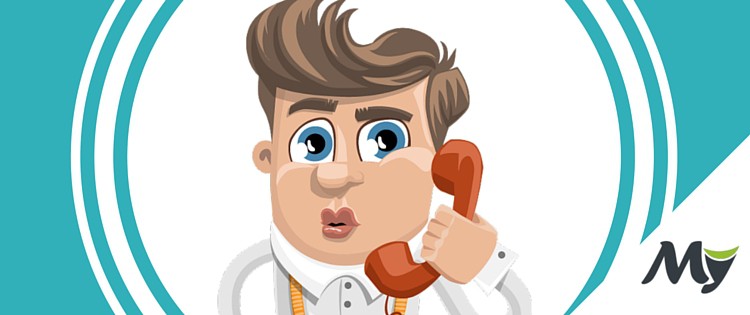
Taking / Receiving a Telephone call
You may need to utilise these if you are answering someone else'due south telephone, because they are unable to answer it themselves, or if you lot are answering an office telephone.
Formal
- 'Hello, this is ___ speaking'
- '___ speaking, how may I assist yous?'
Informal
- 'Hello, John's phone'
Check your Grammer ››
Recommended for you:
Other Ways To Say NO PROBLEM
How to Deal with Bug Faced by Students of English?
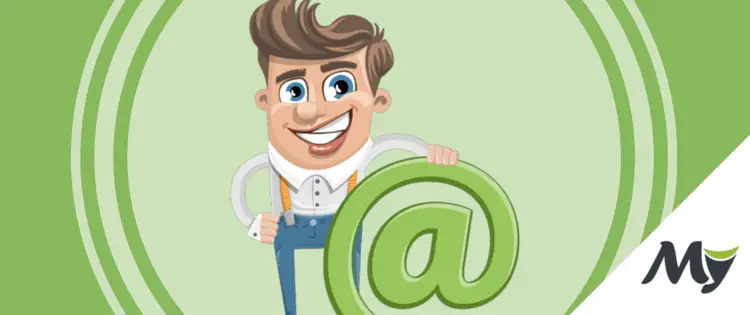
Request for more information / Making a request
If you need to ask for a specific person, then phrase your request equally a polite question, if you just have an extension number and no name, y'all tin say so. If yous're calling for a specific reason, just explain briefly what it is.
Formal
- 'May I ask who's calling please?'
- 'Can I ask whom I'm speaking to please?'
- 'Where are you calling from?'
- 'Is that definitely the right name/number?'
- 'Could I speak to someone who ___?'
- 'I would similar to make a reservation please'
- 'Could you put me through to extension number ___ delight?'
Informal
- 'Who's calling please?'
- 'Who'southward speaking?'
- 'Who is it?'
- Whom am I speaking to?
Skype English Lesson with a native AMERICAN or BRITISH teacher ››
Recommended for yous:
English For Information technology Professionals
TO DO or TO Brand a project?
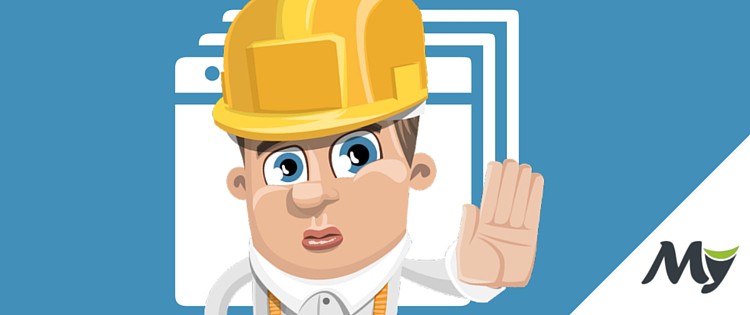
Asking the caller to await / Transferring a call
If you are transferring a caller to someone else, you should permit them know that you lot are doing so, simply then they know what is happening, every bit the silent tone could be mistaken for a disconnected line! If you are the one being transferred, you will oft hear the person use the post-obit phrases:
Formal
- 'Could you hold on a moment delight'
- 'But a moment please'
- 'Hold the line please'
- 'I'll just put you through'
- 'I'll just transfer you now'
Breezy
- 'Concur on a minute'
- 'Just a infinitesimal'
- 'Okay, expect a moment please'
Check your Grammar ››
Recommended for you:
What'due south the difference between direct and indirect questions
Difference Between Request and Telling!
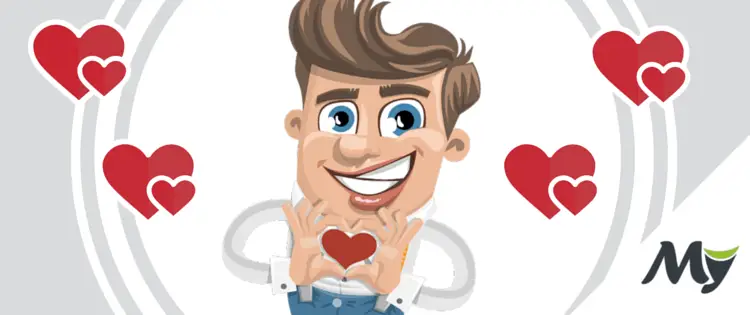
Giving Negative Data
If you are the i answering a call, you lot might not exist able to help the caller. Yous tin can use some of the following phrases in these circumstances:
Formal
- 'I'm afraid the line is decorated at the moment'
- 'That line is engaged at the moment, could you call up subsequently please?'
- 'I'1000 afraid ___'s decorated at the moment, tin I have a message?'
- 'I'm distressing, he'due south out of the office today'
- 'You lot may have dialled the wrong number'
- 'I'thousand afraid there's no one here by that proper name'
Informal
- 'Sorry, ___'s non hither'
- '___ is out at the moment'
Skype English language Lesson with a native AMERICAN or BRITISH teacher ››
Recommended for you lot:
Difference between TAKE and Get
Deviation Between GET and Be!

Phone Bug
If yous don't sympathize everything the other person is saying, be honest. Tell the other person immediately, otherwise y'all might miss some important information! Almost people volition appreciate your honesty, and will be happy to oblige.
Formal
- 'I'1000 agape I tin can't hear you lot very well'
- 'Would you mind speaking up a flake delight?'
- I'thou afraid my English language isn't very good, could you speak slowly please?'
- 'Could you repeat that please?'
Breezy
- 'Deplorable, I didn't catch that'
- 'Say that again delight?'
- 'I can't hear you very well'
- 'Sorry, this line is quite bad'
Check your Grammar ››
Recommended for you:
Other Ways to Say You Are Welcome!
How to reply when someone says me cheers?

Leaving / Taking a Message
If the person you're calling is non bachelor, be prepared to leave a message. This could exist a voicemail, (which is a digital voice recording arrangement), or an answering automobile (this records messages onto a tape). If you're leaving a message with another person, they'll either inquire if you want to get out a message, or you could asking to leave a message with them. Be sure to go out your number, if you desire the other person to telephone call yous back!
Formal
- 'Can I take your name and number delight?'
- 'Tin I go out a message delight?'
- 'Could you please enquire ___ to call me back?'
- 'Could you lot spell that for me please?'
- 'Tin I but check the spelling of that please?'
Breezy
- 'I'll ask him to band you when ___ gets back'
- 'Could yous tell ___ that I called delight?'
- 'I'll let ___ know that y'all rang'
Skype English Lesson with a native AMERICAN or BRITISH teacher ››
Recommended for y'all:
"Become THE MESSAGE" Idiom mean?
15 Phrasal Verbs with Call: call upwardly, phone call out, call around …
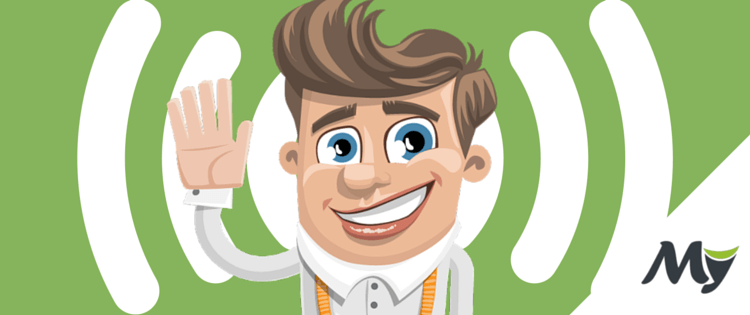
Saying Goodbye
The easiest part of the conversation! Simply be polite, and speak with a friendly mode.
Formal
- 'Thanks for calling'
- 'Take a expert day'
- 'Good day'
Informal
- 'Bye!'
- 'Talk soon'
- 'Speak to you again shortly'
Remember your manners!
Information technology's very of import to exist polite on the phone, use phrases similar could y'all, would you like to, and to make requests, use please. Always call back to finish a conversation with thank you and adept bye.
Write it down!
If you're nervous nearly speaking on the telephone in English, so it may be helpful to write a brief script or a few bullet points on that you lot need to say.
If you volition be speaking to someone you don't know, information technology helps to have things written down in front of you, to calm your nerves!
If you have a cursory outline of what you need to say, it will help to organise your thoughts beforehand, and to utilise it as a reference during the call, if you become confused.
Phrasal verbs
1 matter you lot could do to amend your telephone skills is to learn some of the phrasal verbs that are commonly used in English telephone conversations.
Bank check your Grammar ››
Recommended for you:
A Practical Guide to Using Diplomatic English in a Business organization
Would vs Could vs Should vs Might in English!
Common Phrasal Verbs
ane. concur on
means await
- 'Could you hold on a moment delight?'
2. hang on
also means wait! (informal)
- 'Could you hang on a moment please?'
3. put (a phone call) through
means to connect i caller to some other
- 'I'm just going to put y'all through now.'
4. become through
to be connected to someone on the phone
- 'I tin't get through to his line at the moment, could you lot recall subsequently please?'
5. hang up
means to put the receiver down
- 'I recollect the operator hung upward on me, the line just went expressionless!'
vi. call up
is to make a telephone call (mainly used in American English language or slang)
- 'I'll call back the theatre, and notice out about tickets.'
7. call dorsum
is to return someone's call
- 'I'll ask him to call yous back, when he gets home.'
8. pick up
means to respond a call / lift the receiver to take a phone call
- 'No one is picking up, possibly they're not at habitation.'
ix. get off (the phone)
means to terminate talking on the telephone
- 'When he gets off the other phone, I'll pass on your message.'
10. get back to (someone)
means to return someone's telephone call
- 'When do you think she'll exist able to go dorsum to me?'
11. cut off
to exist disconnected abruptly during a telephone chat
- 'I think nosotros got cutting off, I can't hear her anymore.'
12. switch off/turn off
is to deactivate (a cell phone/mobile phone)
- 'Sorry you couldn't go through to me. My phone was switched off, because the battery had died.'
13. speak up
ways to talk louder
- 'I'yard afraid I can't hear you very well, could you speak up a little please?'
Skype English language Lesson with a native AMERICAN or BRITISH teacher ››
Recommended for y'all:
CAN or MAY? The difference between Tin can and MAY!
Useful English Phrases For Running A Business Meeting
Hold on means 'wait' – andhang on means 'look' too. Be careful not to misfile hang on withhang up!Hang upwards means 'finish the call past breaking the connexion' – in other words: 'put the phone downwardly.'
Another phrasal verb with the same meaning ashang up isband off, but this isn't every bit commonly used as some of the other phrasal verbs listed above.
The opposite ofhang up /ring off isring upward – if youring somebody upward, you make a telephone call. And if youpick up the phone (orpick the telephoneup), yous answer a call when the phone rings.
"Hang on a second…"
If you are talking to a receptionist, secretary or switchboard operator, they may ask you tohang on while theyput youthrough –put through means to connect your call to some other telephone. With this verb, the object (you, me, him, her etc.) goes in the middle of the verb:put you through.
But if you can'tget throughto (contact on the phone) the person yous want to talk to, you lot might be able to leave a bulletin asking them to telephone call y'allback.
Call up ways to return a phone call – and if you apply an object (you, me, him, her, etc.), information technology goes in the middle of the verb:call y'all back.
At present you lot can offset making those calls!
mansoursumakes1960.blogspot.com
Source: https://www.myenglishteacher.eu/blog/phone-conversation-most-commonly-used-english-phrases-on-the-phone/
